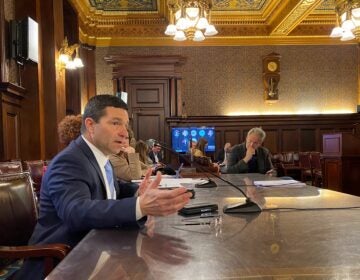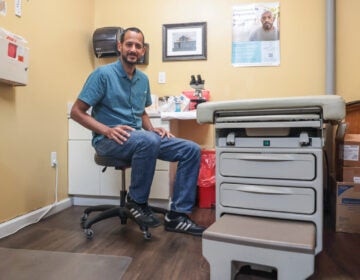As Philly health providers push HIV testing, advocates stress the role of syringe services programs to keep infections down
Prevention Point Philadelphia in Kensington offers HIV testing every day. The organization also has the largest syringe services programs in the city.
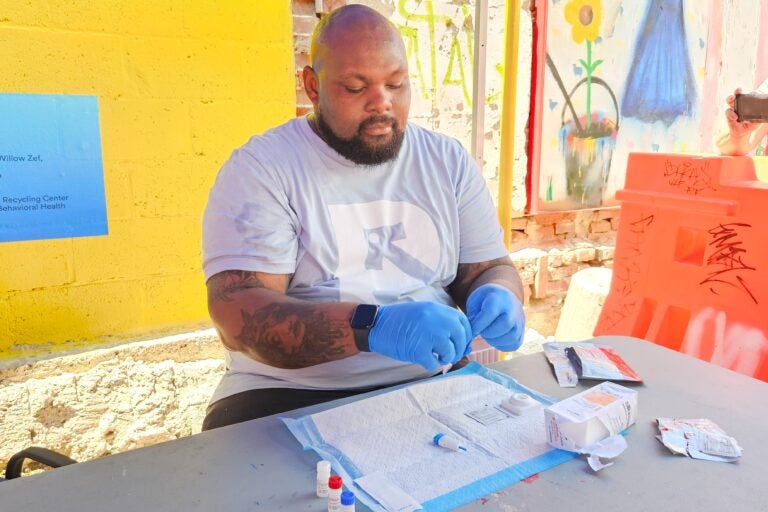
Kareem Mims, prevention health care coordinator at Prevention Point Philadelphia in Kensington, prepares a rapid HIV test, which involves a small finger prick and results in about 60 seconds. (Nicole Leonard/WHYY)
From Philly and the Pa. suburbs to South Jersey and Delaware, what would you like WHYY News to cover? Let us know!
In the shade of a small tent set up in Prevention Point Philadelphia’s outdoor Love Lot, health care coordinator Kareem Mims tore open a rapid HIV test kit.
Next to him sat Philadelphia City Councilmember Mark Squilla, who volunteered to get tested Thursday afternoon in Kensington.
“First thing, we’re going to prick your finger. Are you scared of blood?” Mims asked, to which Squilla responded, “No.”
“Alright, can I see your hand? Give me the finger,” Mims joked.
Using a tiny lancet, Mims pricked Squilla’s finger and collected a couple drops of blood. He then added that to a liquid solution and poured the mixture into a small device. About 60 seconds later, the rapid HIV test showed a negative result.
Public health experts and providers on National HIV Testing Day said they want to increase awareness about the importance of testing for the virus, especially among people who have unprotected sex.
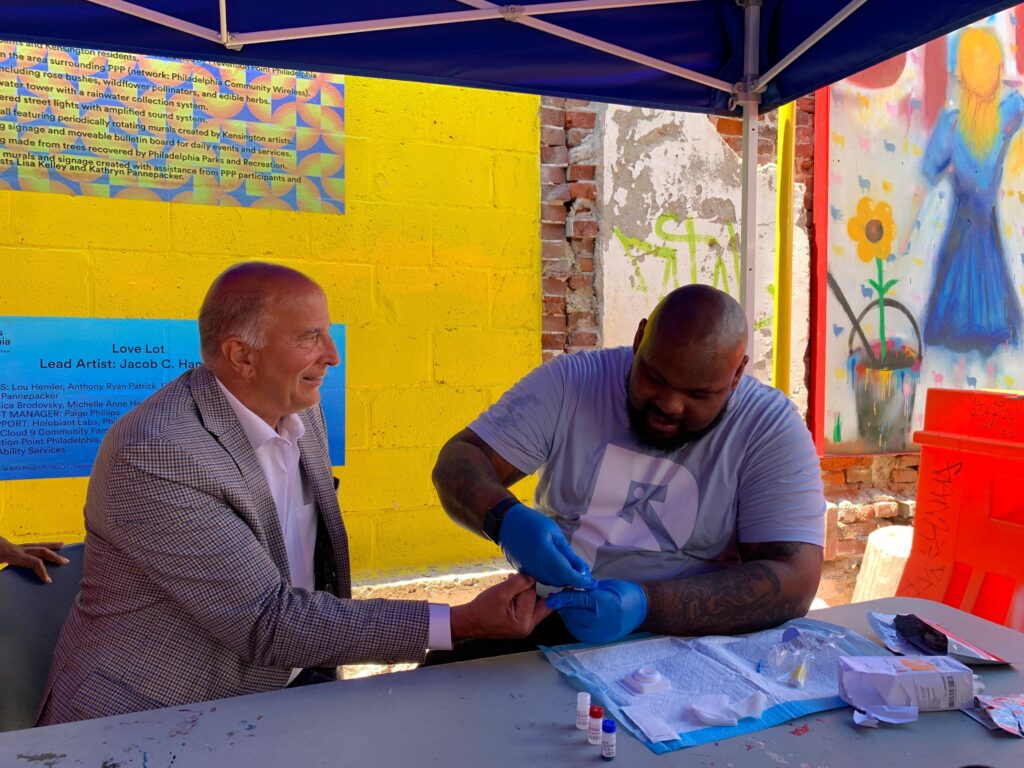
In Kensington, where there is a significant population of people who use and inject drugs, health providers and advocates are also stressing the importance of harm reduction tools like syringe services programs that have helped cut down rates of new HIV infections in recent years.
“Syringe exchange is the most effective biomedical intervention to reduce HIV,” said Silvana Mazzella, Prevention Point interim lead executive officer. “But we also know that testing and PrEP [pre-exposure prophylaxis] is critical.”
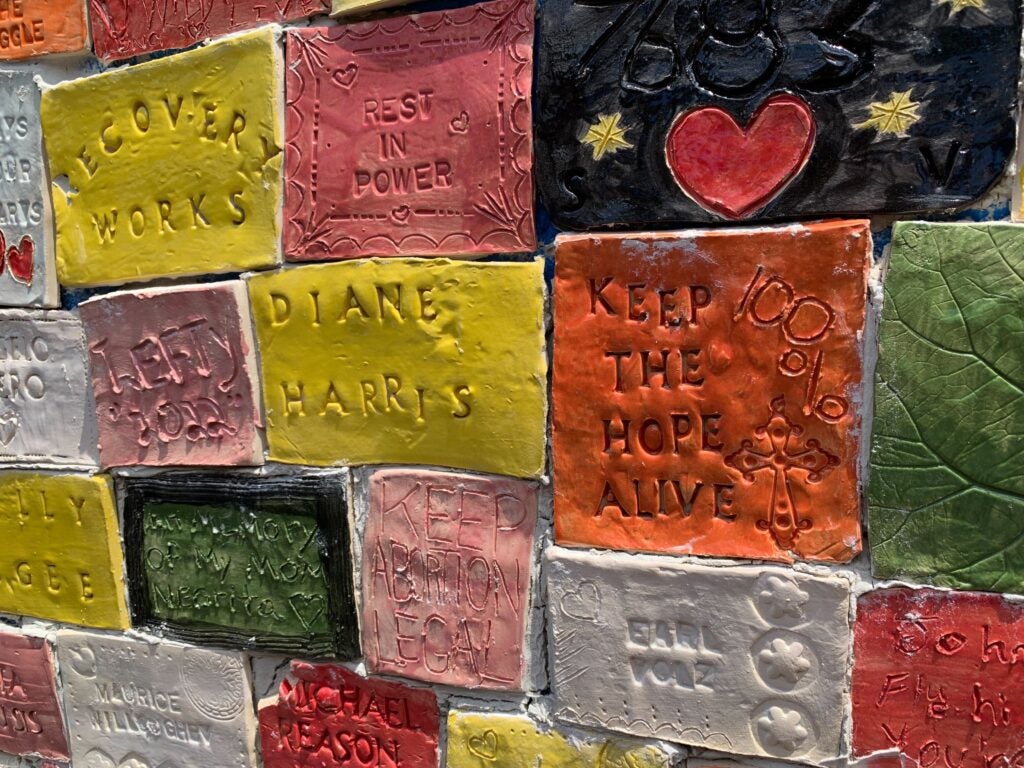
Despite the effectiveness of syringe services, which provide people with clean needles so that they don’t have to share with others and risk infection, Philadelphia Mayor Cherelle Parker cut off city dollars for such programs like the large one at Prevention Point.
Health experts worry this could lead to a rise in new infections in the future. For now, Prevention Point officials say they’ve found substitute funding, albeit temporary, to help support the organization’s syringe services in the short term.
The introduction of fentanyl in the street drug supply has also changed the HIV risk levels among people who use drugs, Mazzella said. The effects of the synthetic opioid tend to fade faster than heroin or prescription opioids, so people may now inject more often.
“People that were maybe doing something two, three times a day went to 16 times a day, 20 times a day,” Mazzella said. “We are constantly getting information from the city Health Department, partnering with them and the city, pivoting and figuring out what is changing in the supply? What is changing in what people are doing? How can we be responsive to that to reduce HIV and keep it where it is or lower it even further.”
At the HIV testing event in Kensington, Northeast Philadelphia resident Robert John Ditmars decided to get tested. Although he doesn’t fall into any high-risk groups, Ditmars said he wanted to lead by example and encourage others to do the same, especially if they inject drugs.
“Drug users kind of have a community feeling, so they share a lot, [with] good intentions, but it’s so wrong and dangerous,” he said. “I think for that reason, [testing] is really a good idea.”
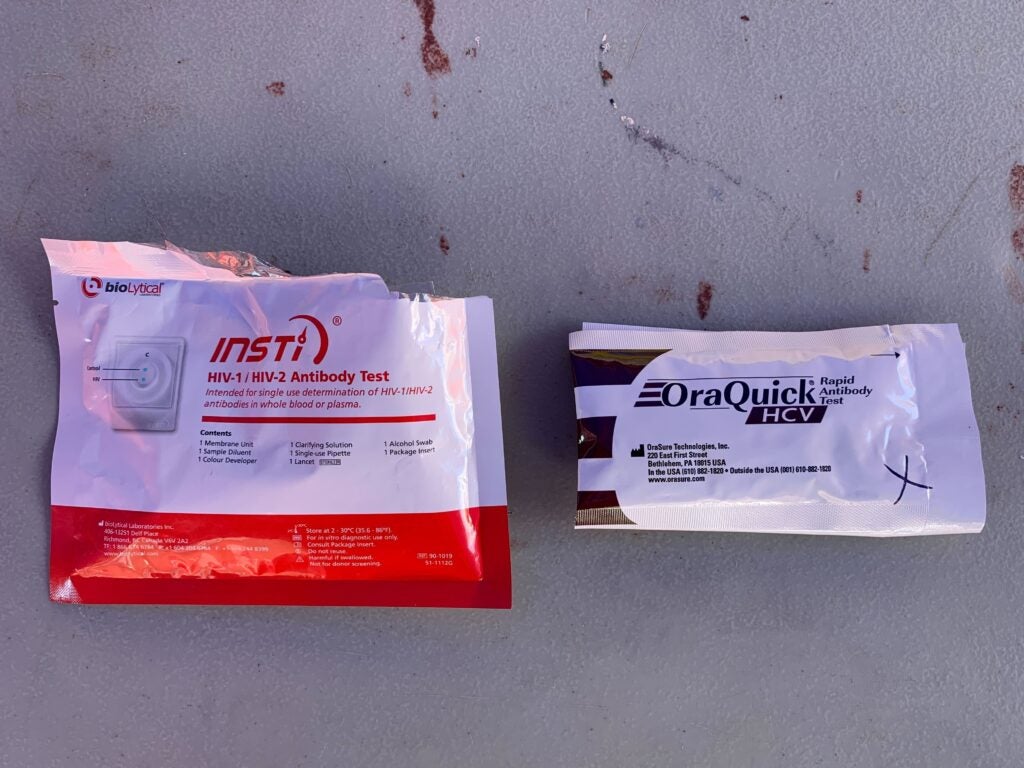
Prevention Point Philadelphia regularly offers daily HIV testing. People who test positive can get treatment immediately. For people who test negative but remain at risk for contracting the virus, the organization offers pre-exposure prophylaxis and post-exposure prophylaxis (PEP) medication, which can prevent infection if exposed to the virus.
New annual cases of HIV have significantly dropped since the height of the crisis in the 1980s and 1990s due to advancements in medication and testing. Many people today live long lives with the virus and never develop AIDS, a more severe stage of illness.
Kareem Mims said part of his job is explaining all this to people and dispelling some of the misconceptions and stigma that continue to follow HIV.
“We’re putting them on medication right away. Once their viral load is suppressed, HIV doesn’t make you sick anymore and also passing it is incredibly hard,” Mims said. “And that way, we’ll be able to end the epidemic.”
An estimated 18,658 people in Philadelphia are currently living with HIV, according to city data. The disease disproportionately affects men who have sex with men, Black and Hispanic residents and people who inject drugs.
A smaller number of HIV cases occur when the virus is passed from mother to infant during pregnancy, and because of other kinds of blood-to-blood contact.
More information about local HIV and AIDS testing, prevention and treatment resources can be found online from the city Department of Public Health.

Get daily updates from WHYY News!
WHYY is your source for fact-based, in-depth journalism and information. As a nonprofit organization, we rely on financial support from readers like you. Please give today.



